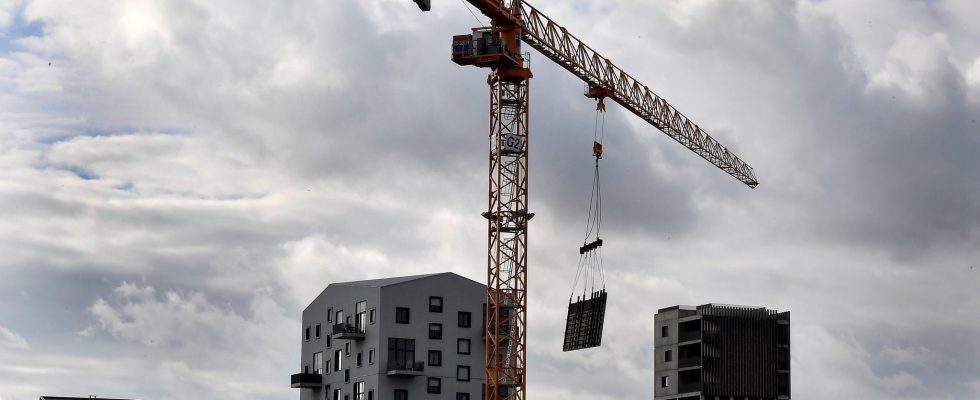The fall is historic. The number of building permits continued to decline in France, standing at 358,600 housing units authorized for construction between April 2023 and March 2024 – or 19.8% less than in the previous twelve months, according to the provisional data published this Tuesday, April 30 by the Ministry of Ecological Transition.
In March 2024, housing authorizations stand at 26,000 (-16% compared to last February). The number of authorized constructions is thus 33% below its average level for the twelve months preceding the first confinement.
For good reason, new construction is going through a major crisis. Construction costs have increased significantly due to more expensive materials and stricter environmental standards. At the same time, buyers have suffered from the rise in interest rates and the reduction in public support schemes for new real estate.
Difficulties which are beginning to have repercussions on employment, while several promoters have announced social plans and other, smaller players, are filing for bankruptcy. The French Building Federation fears 90,000 job losses by the end of 2024 then 150,000 by mid-2025.
22,500 housing units started in March
In detail, individual houses were the subject of 129,200 authorizations (-22.2%), while collective housing obtained 229,300 (-18.4%). Within collective housing, residences (students, seniors, etc.) are doing somewhat well with a drop of 8.8%.
Within France, the crisis spares – a little – certain regions, like Hauts-de-France and Brittany, with respective drops of 4.8% and 8.7%. Conversely, the most tense territories, Île-de-France and Provence-Alpes-Côte d’Azur, experienced significant drops in permits issued with -26.1% and -28.8% respectively.
Furthermore, the number of construction sites started, which traditionally follows that of building permits, also continues to plummet. In March 2024, 22,500 housing units would have been started, or 1,300 fewer than in February (- 6%).
The number of housing starts in March 2024 would be 30% lower than its average for the twelve months preceding the health crisis, with 283,200 starts between April 2023 and March 2024. A number, once again, historically low. The ministry warns, however, that these latest figures are more subject to caution due to more fragmented data collection on construction starts.
